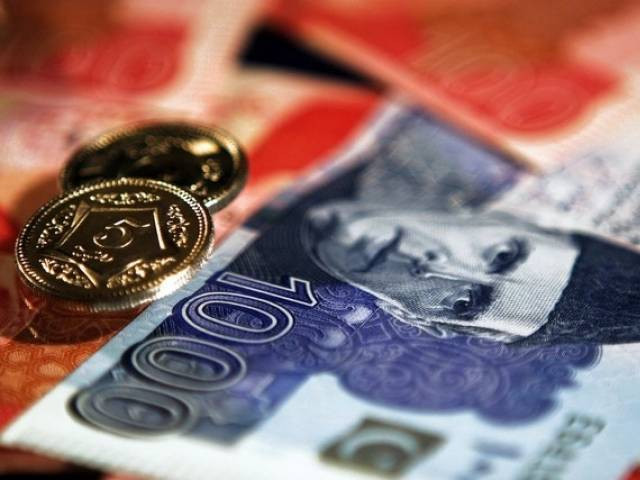Islamic banks post robust growth
Assets, deposits of Islamic banking industry grew 30%, 28% respectively in 2020

Despite Covid-19, Islamic banking maintained a strong growth in 2020 as the government borrowed over Rs700 billion from Shariah-compliant banks during the year to partly finance its budget deficit and to reduce circular debt in the energy sector.
Overall assets and deposits of the Islamic banking industry showed tremendous growth of 30% and 28% respectively in 2020.
“This is the highest increase in assets in a year since 2012 and deposits since 2015. Over the last five years, both assets and deposits of the Islamic banking industry have more than doubled,” State Bank of Pakistan (SBP) reported on Wednesday.
“The growth witnessed in the Islamic banking sector shows a promising transition to the new decade even amidst Covid-19,” the central bank said in its quarterly report - Islamic Banking Bulletin for the quarter ended December 31, 2020.
“The opening of investment avenues for the Shariah-compliant banking industry by the government partly supported the industry to grow during the period under review,” Meezan Bank Head of Product Development and Shariah Compliance Senior Executive Vice President Ahmed Ali Siddiqui said while talking to The Express Tribune.
The Ministry of Finance borrowed Rs500 billion through the launch of government of Pakistan Ijara Sukuk to finance the budget deficit during the year. The government borrowed another Rs200 billion through the Pakistan Energy Sukuk-II to curtail circular debt in the energy sector, he pointed out.
Shedding light on the impact of Sukuk, Siddiqui said that the two historic investment transactions allowed Islamic banks to welcome new deposits from their clients. Earlier, the banks had stopped accepting more deposits due to excess liquidity in the Islamic banking sector, he added.
Accordingly, the Islamic banking industry deposits grew 28% in one year to Rs3.39 trillion in December 2020 compared to Rs2.65 trillion in the same month of previous year.
Similarly, the assets grew 30% in one year to Rs4.27 trillion in December 2020 compared to Rs3.28 trillion in the same month of previous year, according to the SBP.
With this, the Shariah-compliant banking industry’s market share grew to 18.3% in one year in terms of deposits in December 2020 compared to 16.6% in December 2019.
In terms of assets, its market share surged to 17% in December 2020 compared to 14.9% in the same month of previous year.
Siddiqui said the Islamic banking industry had left behind conventional banking on multiple fronts. For instance, it holds a 60% market share in the housing and construction loans. Similarly, it enjoys almost 50% market share in car financing.
He emphasised that the central bank had played a significant role in promoting Islamic banking through different regulations. “The SBP has targeted to increase Islamic banks’ market share (in terms of deposits) to 25% by 2023.”
Similarly, Prime Minister Imran Khan has set a target to increase the market share of Islamic banks to 30% by 2025.
A Senate resolution suggests the government wants to increase its borrowing from Shariah-compliant banks to 30% of the total as soon as possible. “This share, however, stands at a nominal 2.5% at present,” he said.
He said that the International Monetary Fund (IMF) and the Asian Development Bank (ADB) had also suggested to the government to focus on Islamic financing for budgetary borrowing … following the trend and awareness of Shariah compliance surged in society,” he said.
“Islamic banking is growing on demand as the cost of financing from Shariah-compliant banks remains low compared to the conventional banks,” he said, adding that this feature would continue to promote Islamic banking in Pakistan.
Financing of the Islamic banking industry grew 16% in 2020. “Furthermore, non-performing finances (NPFs) to financing (gross) ratio declined from 4.3% as of end-December 2019 to 3.2% as of end-December 2020,” the central bank said.
Published in The Express Tribune, March 25th, 2021.
Like Business on Facebook, follow @TribuneBiz on Twitter to stay informed and join in the conversation.



















COMMENTS
Comments are moderated and generally will be posted if they are on-topic and not abusive.
For more information, please see our Comments FAQ